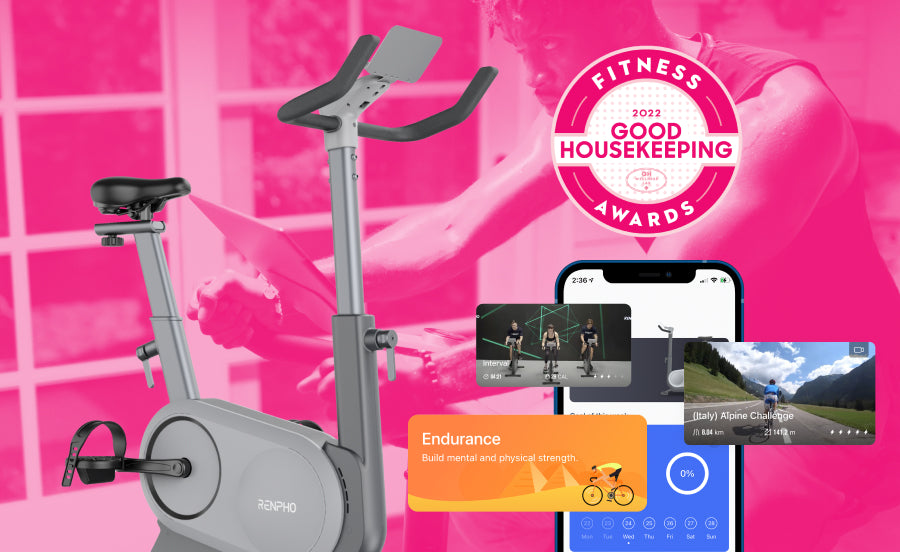Our body composition is a bottomless resource that enables us to dive deep into our own rich health history while also forecasting the trajectory of it moving forwards. We sat down with RENPHO Scientific Advisor, Dr. Cynthia Bir, to learn about what to look out for and how to better improve our health through lifestyle changes.
How Biometric Data Helps to Map Your Health
When a consistent and long-term record is maintained, your body composition history can be a key to discovering the body and health changes over time.
Dr. Bir notes how it can be an important tool to track in response to life situations including eating, exercising, stress, sleep, and also aging. Different measurements provide different information that helps us monitor how our body changes, but the more measurements collected the better.
She adds, “for example, Body Mass Index (BMI) is a ratio of weight to height but doesn’t indicate how much of your weight is fat vs. muscle. Similarly, not all fat is the same and where that fat is stored may impact our health risks.” To learn more about body composition, read our previous blog “What is Body Composition?
Short-Term Trends vs. Long-Term Trends
The more biometric data you have about yourself, the better it is important to monitor these changes over time in response to your lifestyle fluctuations which may include a new diet, exercising more, or even studying for a stress-inducing exam!
“Personal health is a marathon, not a sprint, so it’s ok to monitor shorter-term trends such as weekly trends, but they will be ‘noisier’ than the longer-term trends and may not provide an accurate picture as they may vary depending on the time of day,” says Dr. Bir.
It is much more accurate to look at the long-term trends because it can average out the ‘noise’ from variables such as feasting on that Thanksgiving Turkey! “This helps to provide a far more accurate picture of what’s working or not working with respect to reaching your goals”.
Importance of Using Biometric Data to Monitor Health
Early prevention is always the best way to maintain your health which is why collecting and understanding your body by attending annual health checkups right down to the daily smart devices you use is key in staying healthy. Dr. Bir notes, “our bodies are remarkably adaptable to changes which may lead to gradual changes that may impact our long-term health going unnoticed.”
How Can RENPHO Smart Body Scale Improve my Health?
Biometric analysis can monitor your body changes alongside small adjustments made to your diet and workout regime, which can essentially determine its effectiveness while also pinpointing which part of the body benefited most from the tweak in your daily routine.
Dr. Bir adds, “BIA (Bio-electrical Impedance Analysis) is unlikely to be a reliable indicator or predictor for preventing any particular type of sport-related injury.”
Bio-Electrical Impedance Analysis
All RENPHO Smart Body Scales incorporate BIA technology which transmits an imperceptible electrical current through the soles of your feet via 4 high-precision sensors.
The resistance of this current as it travels through various layers of your body is what enables the calculation of 13 body composition indexes which can be found in the free companion RENPHO app.
Learn more about our wide range of Smart Body Scales and find the right model to suit your home and family needs!

Dr. Cynthia Bir
Dr. Bir has extensive research experience in the area of human injury tolerances. Her research interests include sports injury biomechanics, ballistic impacts, blast injury, and forensic biomechanics.
She has studied the effects of impacts to all regions of the body and is known world-wide for her work in this area. She is a professor at Wayne State University and is currently serving as a member on the NFL Engineering Committee and is part of the review committee for the Head Health Tech Challenge.
She was the lead science consultant for ESPN's Sport Science and won two Emmys for her work on the show. She continues to consult for a variety of science-based shows.
Renpho Health Tips
-

RENPHO Wins 2022 Good Housekeeping Fitness Award
Jan 31, 2022
Read more >
-

RENPHO Seasonal Staff Picks 2021
Dec 02, 2021
Read more >
-

How to Use RENPHO Smart Scale for the Best Workout Results
Mar 31, 2022
Read more >
-

How the RENPHO Smart Body Scale Works with Your Biometrics
Apr 03, 2022
Read more >
-

Stationary Exercise Bikes vs. Rowing Machines: Which Is the Better Workout?
Feb 17, 2022
Read more >
